Jacki Wilkins ’77, sustainable transportation pioneer
By: Maddie Marriott ’24
“We didn’t really use the word ‘sustainability,’” she says. “But I was a Girl Scout well into high school, so I had been exposed to a lot of camping and the outdoors, and through those experiences, I developed a respect for the environment.”
It wasn’t until her entry into the workforce coincided with several landmark environmental protections, including the institution of the Clean Air Act and the Clean Water Act in the 70s and the passage of the Resource Conservation and Recovery Act (RCRA), that Wilkins realized a career in the world she loved was possible.
“My career in Massachusetts started out as a result of those laws and related policies,” Wilkins says. Her time there began with an environmental analyst role in the Massachusetts state government, which eventually led her into consulting before landing at Massachusetts Port Authority (MassPort) for over a decade.
MassPort oversees three public airports, including Logan International Airport, and maritime facilities in the Boston seaport. “I did environmental planning for them and oversaw the preparation of a number of environmental impact reports for our development projects,” she explains. Wilkins also served as the sustainability program manager during her time at MassPort and oversaw Massport’s Environmental Management Systems for those facilities certified under ISO 140001 standards.
Through these roles, Wilkins developed a sustainability mindset while connecting with women concerned with the lack of women in leadership roles in the transportation industry. She dedicated a large part of her career to closing this gap through collaborative involvement with other women in transportation and government. Her leadership in organizations like the Boston Chapter of the Women’s Transportation Seminar (WTS) and the Massachusetts Government Appointments Project (MassGAP) provided opportunities to elevate women to roles where they could make a difference.
“There were women in a variety of fields in transportation, but we weren’t really included at the table,” she says. “So, we created our own table.”
Wilkins’ work at MassGAP is a perfect example of how Wilkins sought to level the landscape for women in transportation. Although the overall impact of MassGAP encompassed all areas of state government, Wilkins served as a task force chair and executive committee member for transportation.
“At the time, which coincided with a gubernatorial election, the excuse was given that men were overwhelmingly appointed to leadership positions in government because qualified women could not be found,” Wilkins explains. “So, we changed that narrative and said we’d find and vet qualified women if the gubernatorial candidates agreed to consider them. We collected resumes of women Democrats and Republicans and established a binder of their resumes, categorized by their respective fields of expertise. Both parties’ candidates committed to use the binder as a resource for appointments to cabinet level positions. We wanted to make sure women were considered in their decision-making process. It’s exactly why diversity, equity, and inclusion is so important,” Wilkins continues. “If you’re not included in decision-making, your voices are lessened, and decisions are not as effective as they can be.”
Wilkins’ roles at WTS were also instrumental in advancing opportunities for women in the transportation industry. “WTS was founded in 1977 when women in governmental transportation positions were only allowed to attend meetings if they were attending a “seminar,” which is how the name (Women’s Transportation Seminar) evolved,” Wilkins explains. “I was very involved in the leadership of the Boston Chapter and served as the first (and only, to date) Black president of the chapter.”
Additionally, Wilkins was one of the organizers of altwheels.org, a nonprofit organization focused on showcasing vehicle, fuel technologies, sustainable transportation options for consumers, and fleet managers to improve health, air quality, and climate change. “After 20 years, altwheels still hosts a one-day seminar for fleet managers to share best practices and new technologies in sustainable transportation.
Wilkins’ time at Lafayette as a woman of color in a newly coeducational space provided her with the tools to persevere in a male-dominated transportation field.
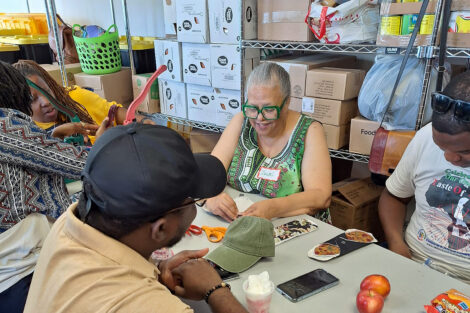
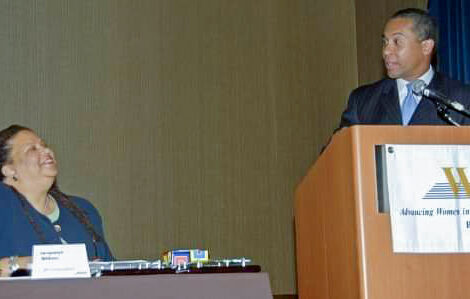
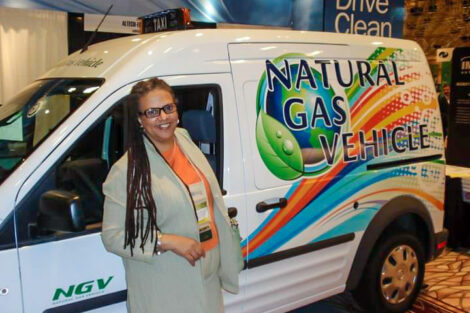
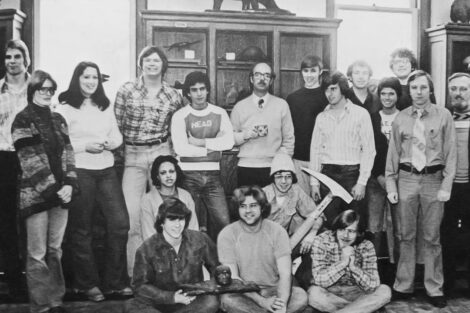
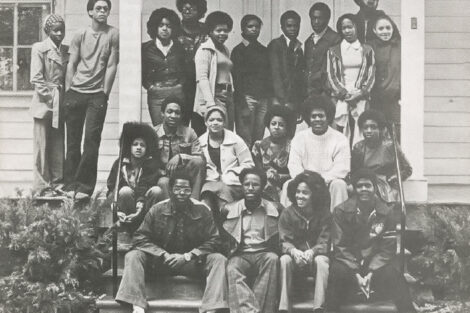
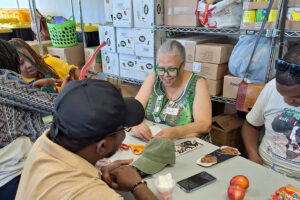
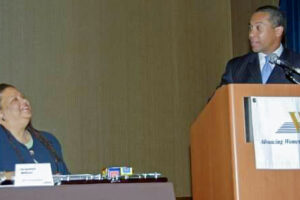
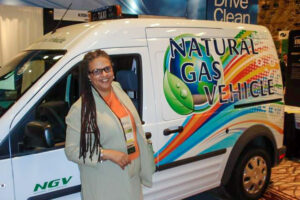
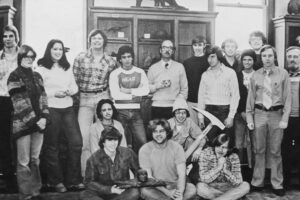
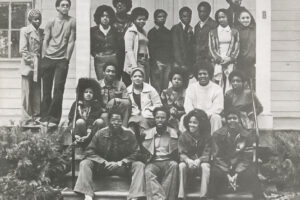
“Although Lafayette at the time seemed to be recruiting students of color, they didn’t consider the support and initiatives connected to a vibrant campus life that these students would need to thrive,” she says. “Remember, this was before Title IX, sororities, and the creation of many other social spaces for women and students of color. I was the first person in my family to go to and graduate from a four-year college. I am very grateful for the Association of Black Collegians and the Geology Club, which provided some positive social outlets for me. But honestly, for a while after I graduated, I felt that I ‘survived’ Lafayette and didn’t appreciate its benefits. My Lafayette experience played a large role in developing my character. Some of the difficult hurdles I faced really did prepare me for the real world outside Lafayette,” she continues. “It wasn’t easy, but I learned how to find allies—I found mentors in professors and older students. It was about coming together with those kinds of like-minded people to help you pass through a tough time.”
Wilkins initially entered Lafayette as a chemistry major but made the pivot to geology after taking an introductory geology course where she connected with department head Richard Faas and her adviser, current professor emeritus Guy Hovis.
“Dr. Faas used to invite us to his house, and his wife would feed us,” Wilkins recalls. “It was very nurturing and in tune with what I needed to grow. It ended up being my respite.”
Now, Wilkins has found an organization where she can continue to make a difference—Pan African Sisterhood Health Initiative (PASHI). She spends her days in retirement sewing reusable menstrual pads for young girls in need all over the world.
“It changes women’s lives,” Wilkins says proudly. “We have orchestrated 44 shipments with a minimum of 300 pads per shipment to date to various locations in Africa and Cuba. We are always looking for ways to partner with other organizations and broaden our impact.”
Although retired, Wilkins is always thinking about ways to improve the planet through sustainable practices.
“What we need is a paradigm shift in all of our thinking,” she says. “I was impressed to read about what several students at Lafayette are doing in the community to reuse items that graduating students might leave behind, as well as the initiatives connected to LaFarm. In addition, I noticed the campus is now more pedestrian friendly and embracing initiatives to reduce its carbon footprint through the use of electric golf carts and several electric maintenance vehicles. It is really nice to see these advancements happening. There is no silver bullet to saving the planet. We need to make choices in everything that we do. Lafayette is making those choices.”